When purchasing a home, most buyers take plenty of time finding the right agent and the right property, but what they often overlook is their financing.
According to the National Association of Realtors, 87% of recent homebuyers financed their property purchase. However, when going into a home purchase, most people will need to seek the assistance of a loan provider.
Your loan and the provider you work with will impact your experience owning a home. This could very likely be a loan that you are locked into for the next 30 years, so choose wisely.
There are three things you must know about mortgage lenders when it comes to financing your home.
- There are different types of lenders.
When you start looking into finance options for your home purchase, you’ll come across a few different types of providers, but most commonly, you will work with a loan officer or mortgage broker.
Loan officers will work directly for a financial institution or retail lender. This means that they can only offer you loans offered by the organization they work for.
Mortgage brokers will have relationships with several institutions and access a bundle of loan products from various providers. They will shop around to find the best loan structure for you.
- There are many different loan products.
Lenders will offer a suite of products to consumers. Most will fall under conventional loan products. Conventional loans, also known as conforming loans, follow the lending rules of Fannie Mae and Freddie Mac. Consumers can access these loans with as little as 3% down.
Unconventional loans are government-backed loans. The three types of unconventional loans are FHA, VA, and USDA loans. These loan products will each have unique qualifiers, and not all buyers are eligible.
An experienced mortgage broker will help educate you and guide you to the best loan product for your home purchase.
- Not all mortgage brokers are alike.
Most brokers have access to the same or similar loan products with the same interest rate. Ask brokers about their underwriting process, any fees they may charge for loan origination, and how long it takes to process a loan application. If the underwriting process is slow, it could derail and deal, particularly in a hot real estate market.
Lastly, it’s essential to be comfortable with your loan provider. When you ask questions, they answer directly and clearly.
Finding the right mortgage broker may take you a few conversations, however taking your time could save you hassle in the long run. Before you start the loan process, educate yourself on various loan products and rates so that you can have an effective conversation with your broker.




